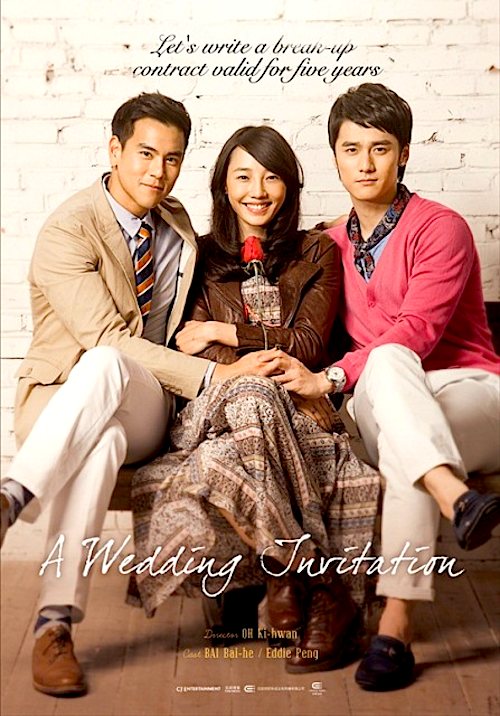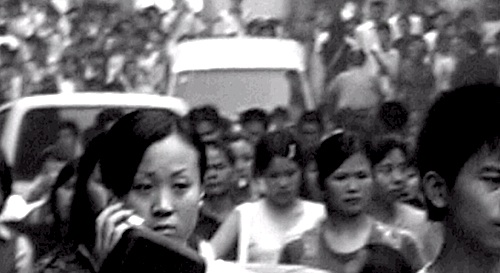By Joe Bendel. Love means never having to ask: “where have you been for the last five years?” When dumping Li Xing, He Qaio Qaio thought they needed time to establish their careers. If they were still single five years later, then they should get married at that point. However, a lot can happen in five years, including his eleventh hour engagement to the boss’s daughter. As you might have guessed, He will try to win back her soul mate in Oh Ki-hwan’s A Wedding Invitation, which opens this Friday in New York.
Yes, you probably think you have seen this film before, just with a less attractive cast. He Qaio Qaio does indeed travel to Beijing, ostensibly to celebrate Li Xing’s wedding, but really with the intent to seduce and disrupt. She even enlists her gay best friend to pretend to be her lover, in hopes of making Li Xing jealous. Oh, but not so fast. In its third act, Invitation veers into three hanky territory, doing what commercial South Korean cinema does best.
 Frankly, if you want to enjoy the guilty pleasure of a weepy melodrama, you have to look east. Hollywood does not do Affairs to Remember anymore. Everything has to be ironic or quirky these days. A multinational co-production, Wedding features a Mainland and Taiwanese cast and a largely Korean crew on the other side of the camera.
Frankly, if you want to enjoy the guilty pleasure of a weepy melodrama, you have to look east. Hollywood does not do Affairs to Remember anymore. Everything has to be ironic or quirky these days. A multinational co-production, Wedding features a Mainland and Taiwanese cast and a largely Korean crew on the other side of the camera.
It is a division of labor that works relatively well. As He, the luminous Bai Bai-he is initially exasperating in the Julia Roberts portion of the film and then heartbreaking in the Il Mare-esque conclusion. Although Eddie Peng is no stranger to the rom-com genre (having been totally overshadowed by Shu Qi in Doze Niu’s Love, for instance), he really comes into his own with his work as Li Xing. While suitably earnest, there is also an edge to his Top Chef contending leading man turn. Pace Wu (a.k.a. We Pei Ci) does not get much dramatic heavy lifting, but she is far more charismatic than comparably inconvenient fiancées in rom-coms past.
In the opening screwball section, viewers are likely to wince at the flat-footed He, but down the stretch they are guaranteed to get a little misty-eyed for her. Sure, that is all very manipulative, but audiences will feel like they have been through a lot with these characters. Oh, the rom com specialist, deftly manages the frequent flashbacks and keeps the proceedings pleasantly pacey. Recommended for those not afraid of a little sentiment (or a lot), A Wedding Invitation opens this Friday (5/24) at the AMC Empire in New York and the AMC Metreon in San Francisco.
LFM GRADE: B-
Posted on May 21st, 2013 at 1:59pm.




